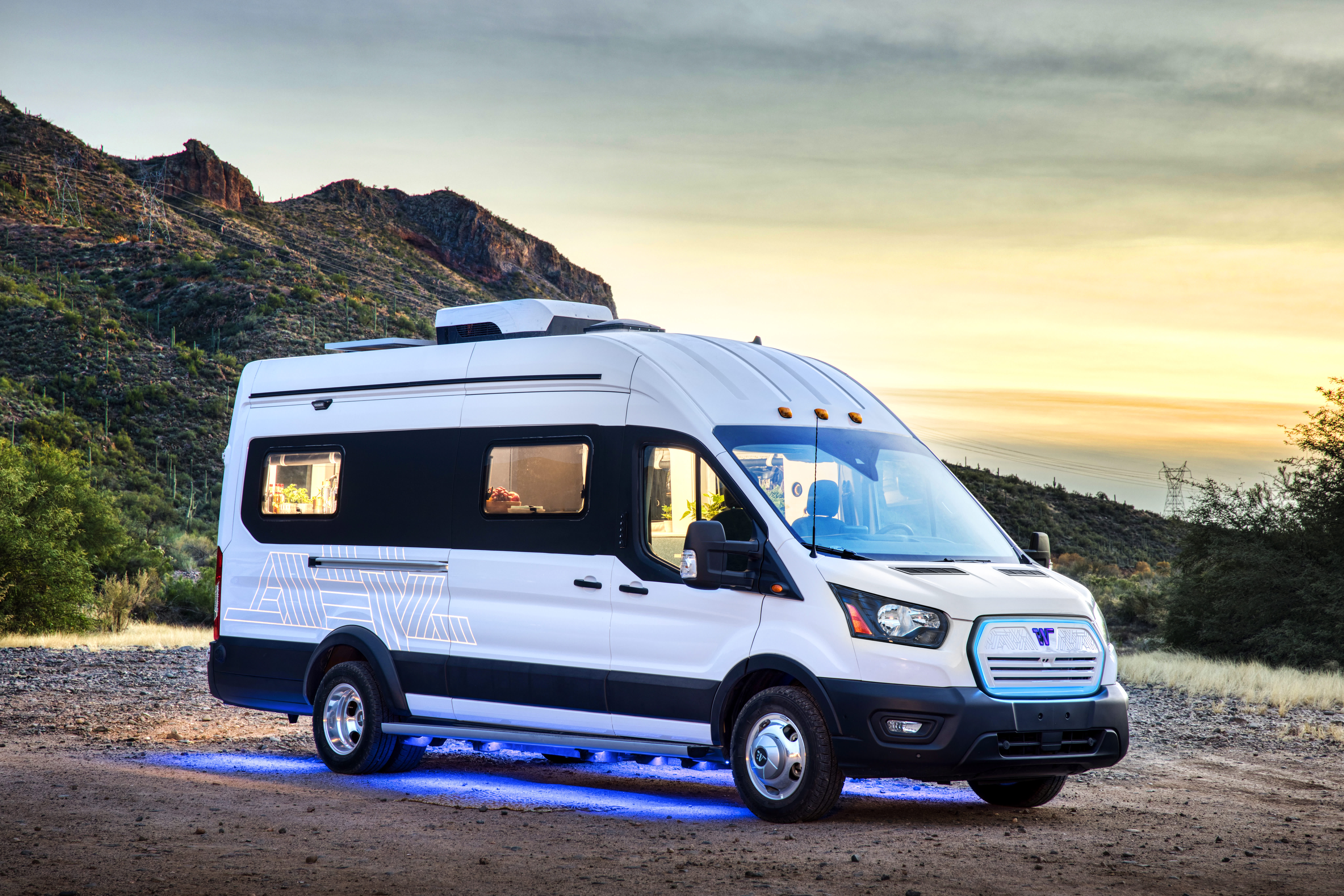
Road trips might be one step closer to going green.
Motorhome company Winnebago Industries announced its concept for an “all-electric zero emission motorhome” this week, the first of its kind from a major RV manufacturer. With it, the company is joining a fleet of automakers looking to expand into electric campervans: Fellow motorhome company Thor Industries, for example, announced a similar model at the 2022 Florida RV SuperShow one day later.
Winnebago’s first e-RV is currently set to be powered by a 86-kWh battery, giving the vehicle a 125-mile driving range while also powering its on-board amenities.
Source: Winnebago Industries, Inc.
Neither company has publicly announced production plans yet, but Winnebago CEO Michael Happe told CNBC’s “Power Lunch” on Tuesday that he’ll have timeline updates “later in calendar year 2022.”
Prices for his company’s “e-RV” were also not announced, but conventional Winnebago motorhomes start at roughly $100,000.
Here’s what else you need to know about Winnebago’s upcoming electric RV, including what it’ll look like once it hits the market:
Driving range
Modeled after the Ford Transit campervan — comparable to a Class B RV — the e-RV is currently set to contain an 86-kWh battery, which will give the vehicle a 125-mile driving range while also powering its array of on-board amenities.
Those amenities will include a “marine-grade refrigerator” and “slide-out induction cooktop,” along with a sink, toilet and detachable shower head, according to a company statement on Tuesday.
Winnebago’s e-RV, not yet in production, will feature a “marine-grade refrigerator” and a “slide-out induction cooktop,” according to a company statement.
Source: Winnebago Industries, Inc.
Happe said Winnebago is working to expand the e-RV’s mileage to at least 200 miles after a 45-minute charge, ideally before the e-RV hits the market, to “appeal to a bigger wave of early adopters.”
That goal stems from RV Industry Association research, which found 54% of RV owners travel and camp with their motorhomes within 200 miles of their homes.
“Many of our recreational vehicles have different power systems in them to allow you to be off the grid,” Happe said. “The e-RVs won’t be any different.”
An eco-friendly interior
The interior of the e-RV is eco-friendly, too: The concept features cork-rubber flooring and woolen walls to “enhance thermal and wall insulation,” according to the company’s statement.
Winnebago aims to create a “holistic” e-RV, with a sustainable interior, according to company CEO Michael Happe.
Source: Winnebago Industries, Inc.
The living quarters, appliances and controls will all rely on the vehicle’s electrical power system, built by electric vehicle production company Lightning eMotors.
“As opposed to just trying to adapt an RV, we’re really trying to create a true e-RV,” Happe told CNBC.
Possibly the first of many
Thor Industries isn’t Winnebago’s only competitor here: The concept also follows an announcement of a similar upcoming campervan from Mercedes-Benz. Last year, Nissan also unveiled plans for an all-electric “winter camper.”
None of those companies have announced mass production timelines yet, but they all appear to be following public interest. In a 2020 Consumer Report survey, 71% of American respondents said “they would consider buying [an electric vehicle] at some point in the future.”
With its e-RV announcement, Winnebago is joining a fleet of automakers expanding into electric campervans.
Source: Winnebago Industries, Inc.




